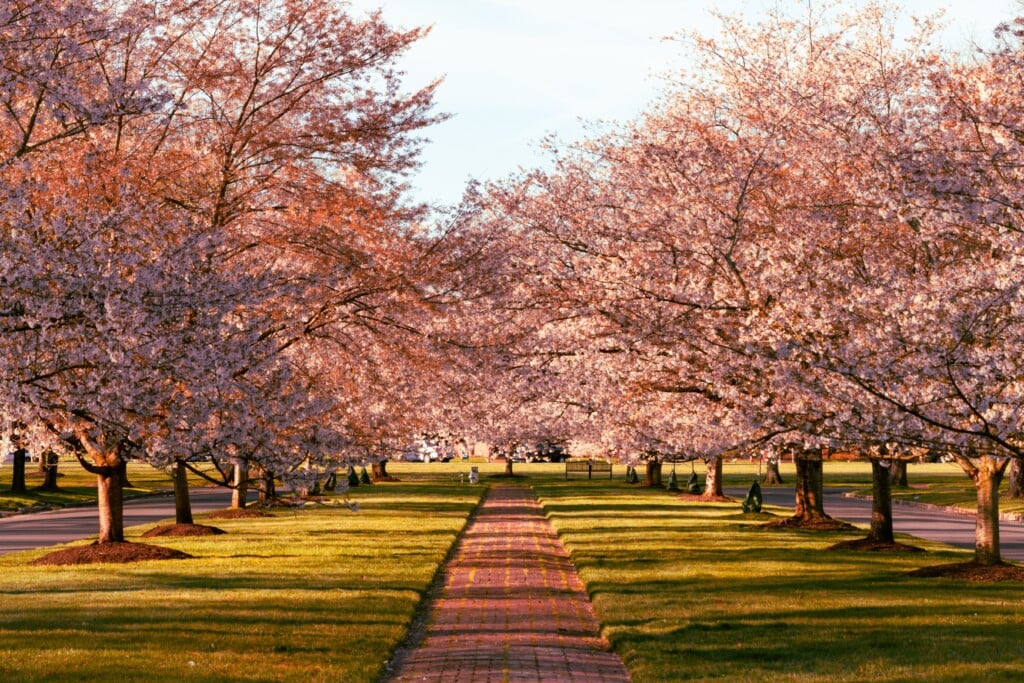High Tea With a Side of History at Newport’s Historical Chinese Tea House Cafe
Learn about Alva Belmont’s longstanding Rhode Island legacy surrounded by ancient Chinese architecture and design.
The Preservation Society of Newport has joined forces with Stoneacre Brasserie in efforts to shine a light on the rich history behind Newport’s Historical Chinese Tea House Cafe.
While roaming the halls of Marble House, one of Bellevue’s most famous Gilded Age mansions, your glance might be stolen by stunning Cliff Walk views and intricate architecture around the former estate. Take a peek just beyond the picnic grounds and you’ll see Rhode Island’s only traditional Chinese tea house – a fully functional eatery operated by one of the neighborhood’s favorite restaurant groups.
The tea house sits at the foot of Marble House’s sprawling landscape. Built by William Vanderbilt in the late eighteenth century, building the mansion cost about eleven million dollars. Vanderbilt’s then-wife, Alva Belmont, was gifted the estate on her thirty-ninth birthday. She added the cliffside tea house in 1908, modeled after the Song dynasty’s intricate artwork and culture, and built by architectural duo Richard Howland Hunt and Joseph Howland Hunt.
For many years, the structure was used for anything but tea parties. Belmont, an ardent suffragist, would arrange secret meetings supporting women’s rights. She even permitted the Congressional Union for Woman Suffrage to use Marble House as headquarters for some time.
Belmont decorated the walls of the tea house with calligraphy celebrating the power of women. On bright yellow pennants and painted directly onto the structure, Chinese calligraphy read the ancient proverbs: “A woman of strong character is said to be a hero among women. Women with pretty faces and fascinating manners really may overthrow cities.” Sixteen proverbs from the “Cheng Yu Kao,” written by Qiu Jun, are inscribed within the tea house.
Chinese tea was a tool for suffragists, as Alva proved throughout her years of activism. They served and sold varieties called “Equality Tea” and “Votes for Women Tea,” which conveyed strong messages during a time of mockery from anti-suffragist movements. The tea house was a sacred meeting place for those fighting for liberation in America, China and beyond.
The efforts of Belmont and many other activists made remarkable contributions towards equal rights in the country and ignited a period of progressive feminist attitudes across Newport.
Years later between Belmont’s time and its present use as a cafe, the tea house was severely damaged by a hurricane and fell into disrepair. The Newport Preservation Society undertook a major restoration and reopened the tea house in 1982 with great ceremony and fanfare, where the Chinese Ambassador attended and cut the opening ribbons.
Recently, the Chinese Tea House Cafe was taken over by Stoneacre Brasserie, one of Newport’s hottest restaurants, to offer a unique prix fie menu in addition to small bites and sips.
For $65, parties of two or more can enjoy bottomless tea of their choosing, a cocktail, an entree and a fully stacked tea tower. Think English high tea with bites to satisfy all different palates – fresh scones and finger sandwiches paired with sweet clotted cream and authentic macaroons to finish, and a variety of piping hot tea to wash it all down.
Thirsty for more? Visit the Newport Preservation Society online to plan your visit or reserve a spot here.



























